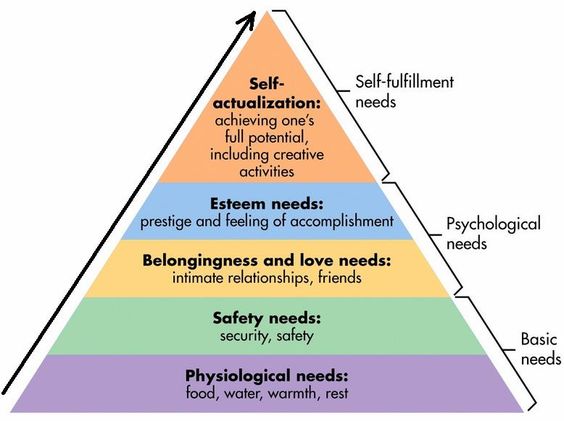Have you ever thought about your child’s sense of self-pride? Do you believe your child knows what it means to have pride in themselves?
Let’s start this week’s parenting Tuesday Tip by defining the word “pride”. One definition has been stated as the following: “Pride is a a reasonable and justifiable feeling of being worthwhile: self-respect.”
Parents provide everything their young child needs. We create a safe, secure, and stimulating environment at home. Parents do what is needed to help develop social skills with play dates and a variety of outings with friends. In fact, parents are responsible for providing for all young children’s needs. Let’s study the image below which displays the famous psychologist Abraham Maslow’s “Hierarchy of Needs” and think about where “pride” fits into it.
 You might realize that a parent easily provides a child, all needs represented on this pyramid. Additionally, you may have recognized that “pride” falls within the top portion of the pyramid and is noted as “esteem”. Does this mean that helping your child develop pride is not important? Not at all. Every slice of the pyramid is needed to raise a well-minded child able to face life in today’s complex society. Helping your child develop pride may one of the parenting provisions we might not think about often, even though it is just as important as the rest of the pyramid.
You might realize that a parent easily provides a child, all needs represented on this pyramid. Additionally, you may have recognized that “pride” falls within the top portion of the pyramid and is noted as “esteem”. Does this mean that helping your child develop pride is not important? Not at all. Every slice of the pyramid is needed to raise a well-minded child able to face life in today’s complex society. Helping your child develop pride may one of the parenting provisions we might not think about often, even though it is just as important as the rest of the pyramid.
So how can you help you child develop a sense of pride and therefore satisfy the child’s esteem needs? Here is a list of suggestions for you to consider:
- Help your child learn to do things independently.
- When teaching your child how to do something new, show them first, then do it with them, then allow them to try it on their own.
- Praise your child with specific and sincere praise – avoid overusing general praises like, “good job”.
- Be a good role model.
- Recognize “effort” often and encourage them when facing a challenge.
- Ban harsh criticism.
- Focus on your child’s strengths and accomplishments.
- Continue to support and develop your child’s successful accomplishments (if their interest remains).
- Let them do their chores – give them responsibilities.
- Show love and unconditional acceptance.
- Talk to your child quietly and privately following mistakes and remind them that no one is perfect.
- Provide opportunities for giving to and helping others.
- Avoid “insincere” praise and over-praise dependency.
Having pride in oneself helps us face each new learning experience with confidence to take risks. At Concordia, we believe every child is a gift from God and everyone in the Early Childhood Division at Concordia works faithfully to communicate with our students how proud we are of them and we do our best to create many moments in the classroom where each child finds pride in their accomplishments.




